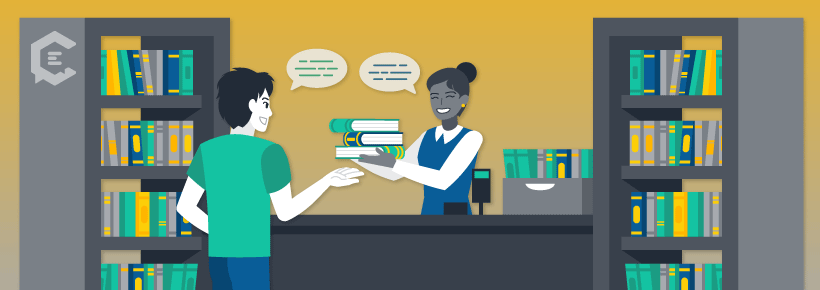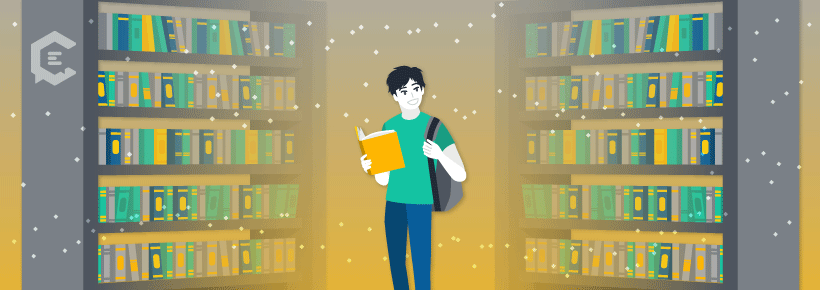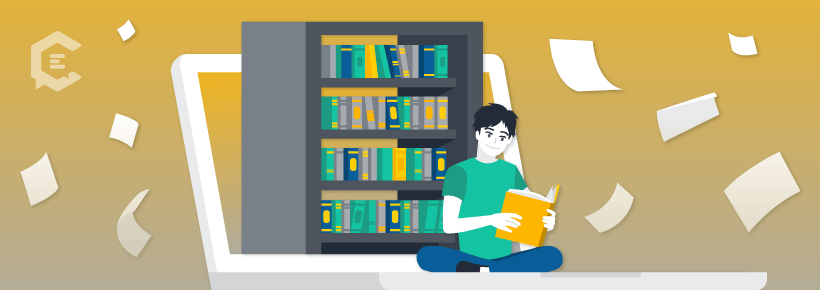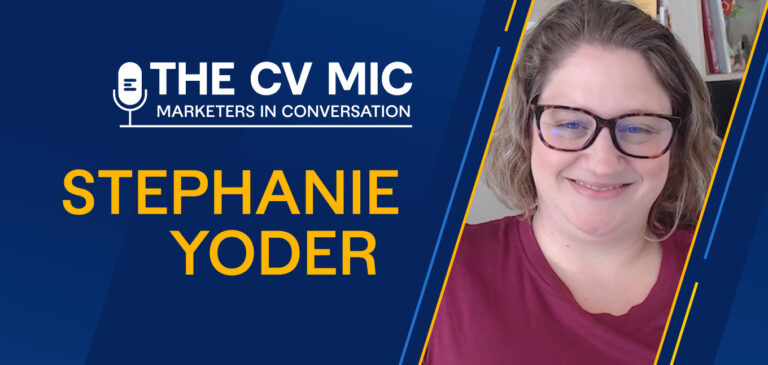In this series, we examine how Umberto Eco’s book, ‘How to Write a Thesis,’ can be used to help writers improve their focus, research smarter and get any writing project done faster. In part six, we look at how getting lost in a library can elevate your research.
In Umberto Eco’s recently English-translated book, “How to Write a Thesis,” he describes the library as a room in which “the books talk amongst themselves.”
Though some might find libraries, and the books inside them, to be dusty and obsolete, this blog post aims to change your attitude. Libraries, depending on your sense of adventure, can be a writer’s endlessly giving treasure trove, but they require a lot of patience.
Getting lost in a library might be the best thing for your research. Here’s why.
Go straight to the librarian, please.
Eco’s love for libraries leads his readers to shelves with index cards called the card catalog, but most millennials have likely not touched one since third grade.
Trust me, go straight to the librarian. Not because I don’t believe you will find what you are looking for on your own, but because once you befriend a librarian, she will help you take your research to a whole new level. As Eco says, a librarian wants to show you how much her library has to offer, no matter how large or small the collection.
Once upon a time, I was a scrappy, young American scholar, who spoke little French but was arrogant enough to enter the Bibliotheque Nationale de France, a building consisting of four 24-story towers, shaped as open books overlooking a garden. I stood in front of this behemoth to every text ever printed in France and was, to say the least, intimidated. How was I going to find what I was looking for inside four high-rise-buildings filled with 14 million books and publications, all collected over 558 years of French history?
I immediately went to the librarian and handed her my note: “1906 World Exposition in Marseille; King Sisowath of Cambodia, first royal trip to France.”
With these few words, this angelic lady led me into a yellow softly lit room of resources that could only be touched and held in this special place.
And I kid you not, as I entered the space, I could hear the whisper of gossiping books. When I touched one book, the one right next to it had another little tidbit of the story I was researching. And then another opened up angles and perspectives that shape-shifted my thinking.
It led me to a change in the course of my research. It was a titillating experience to open book after book and find how so much on a subject I thought was so obscure.
“Fernweh knowledge” for wanderlust learners
For writers, entering a magical space where you are physically surrounded by books and magazines that speak to your interests can lead you to wonderful discoveries.
If you can afford to go to one of these amazing libraries in the world, go! And get lost in what I call “fernweh knowledge,” where you go to a place unknown (far-away from your knowledge base) and wander about museums, libraries and gardens looking for nothing in particular, but learning something as you go.
You go not knowing how this knowledge will help you in life. But you trust that it will be useful somewhere along the way. The word fernweh comes for German and means something like wanderlust, but is more closely translated as “far sickness” where you yearn to be in a faraway place, and a book can be one of the best destinations you’ve ever gone.
Libraries online for “fernweh knowledge”
If you can’t afford a trip to a library with walls, there are also some amazing online libraries and collections you can get lost in. Make it a habit to give yourself an hour or two every month and dedicate it to this wanderlust knowledge.
Famous writer Malcolm Gladwell says he often frequents the SSRN online hub, which offers thousands of publications on research topics from emerging advances in food science, biochemistry, humanities and dozens more fields of study. Read the abstracts, and you can find so much more to write about by learning what top scholars are studying today.
Gladwell says the site is an endless source of stories for his top-of-the-charts Revisionist podcast, and everyone these days listens to podcasts.
Another good place to wander is the Library of Congress’ Digital Collections. There, I’ve meandered while reading the Alexander Hamilton Papers, a collection of correspondence, reports, annotated drafts of the Constitution, writings, deeds, agreements, and certificates signed by the man in the room where it happened.
Also, you can peruse Ansel Adam’s Photographs of Japanese-American Internment at Manzanar, where a personal event in Adam’s life led him to photograph Japanese-American citizens held in captive by their own U.S. government.
Besides the U.S. Library of Congress, your thirst for knowledge can also be quenched by some of the most interesting digital collections curated by universities and learning institutions who have done a remarkable job of letting books talk amongst themselves, such as this fascinating digital libraries of historical children’s books all digitalized and ready to read created by the University of Florida.
Writers love libraries, whether in the physical form or the digital. Go, Fernweh knowledge, young writer!
Read other articles in this writing series:
- Research Like a Pro: The Professor’s Guide to Smarter Writing Research
- A Writer’s Work Plan: Diagramming and Mapping Out Your Mind Before Writing
- Going Old-School Works: How Index Cards Can Help Writers Improve Storytelling
- Why Academic Humility Is an Essential Part of Research and Writing
- Free-Writing and Journaling: Tools to Activate Original Ideas






